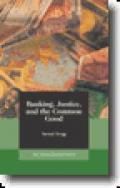


When people talk about politics, they are usually discussing passions and interests, often with a whole lot of passion and interest. This is why prohibitions exist in polite society against talking about politics. Political discussions about issues, parties, or candidates are often performative recitations of opinion: yesterday’s knowledge, right or wrong, applied to today’s situation. These debates can be engaging, enraging, or enjoyable. It is this sort of politics that, as Henry Adams observed, “as a practice, whatever its professions, has always been the systematic organization of hatreds.”
This may be the inevitable and lamentable consequence of politics, but there is no reason our thinking and discussion of political matters needs to fall into this pattern. Thinking and talking about politics can be an occasion for teaching and learning, for thinking through our own values and learning municate them with others. A few weeks ago, I shared a concise natural law reading list. Natural law helps us analyze politics philosophically. Here are three books to help you evaluate and discuss politics historically, economically, and legally.
For a historical understanding of politics there is no better starting point than Lord Acton: Historical and Moral Essays. In his “Inaugural Lecture on the Study of History,” Lord Acton makes the case that history is essential for understanding politics:
For the science of politics is the one science that is deposited by the stream of history, like grains of gold in the sand of a river; and the knowledge of the past, the record of truths revealed by experience, is eminently practical, as an instrument of action and a power that goes to the making of the future.
Concepts such as freedom are invoked on all sides of political controversies. Liberty, mon good, democracy, and patriotism plex. Their meanings are defined, and often contested within, our heritage. Lord Acton traced the development of one particular idea, liberty, from ancient Greece, Rome, and Israel to the present day. He showed that attempts to realize liberty in history gave rise to other vital concepts through which we understand our politics, such as human rights, the rule of law, democracy, and the very distinction between society and the state itself. He also shed light on the way in which misunderstandings concerning the nature of liberty gave rise to rival systems with which es into conflict in the forms of socialism, nationalism, and radical egalitarianism.
After we have been historically informed about the emergence of the categories of political thought, it is time to bring the economic way of thinking to bear on questions of politics. How does the logic of human choice, the reality of exchange, and social cooperation under the division of labor relate to our rights, duties, and political institutions? The German economist Wilhelm Röpke thought deeply about these issues. Röpke, who was immersed in the economic way of thinking, remained deeply suspicious of reducing the human person, society, and the state to mere economic inputs. The Humane Economist: A Wilhelm Röpke Reader collects the mature fruit of Röpke’s thought in an accessible package. His is a thoughtful reflection on the organic nature of society, including the economy, and a measured and nuanced advocacy of a politics that seeks to support – and not dominate – the social order of which it is a necessary but small part.
Lastly, there is the question of the law itself. How should the natural law inform positive law? How have our political institutions used the law to secure justice? When have they used it to entrench privilege? Can human society be organized by law alone? Is society the product of law, or does it exist prior to the law? Frédéric Bastiat’s The Law is guaranteed to get you thinking through these questions in a rigorous way. This concise and incisive work is one of those rare books that is systematic, logical, and full of wit.
These books will help you think about politics beyond the latest controversies and help talk about politics without descending into mere sloganeering and electioneering.
Happy reading!
This photo has been cropped. CC BY-SA 2.0.)









